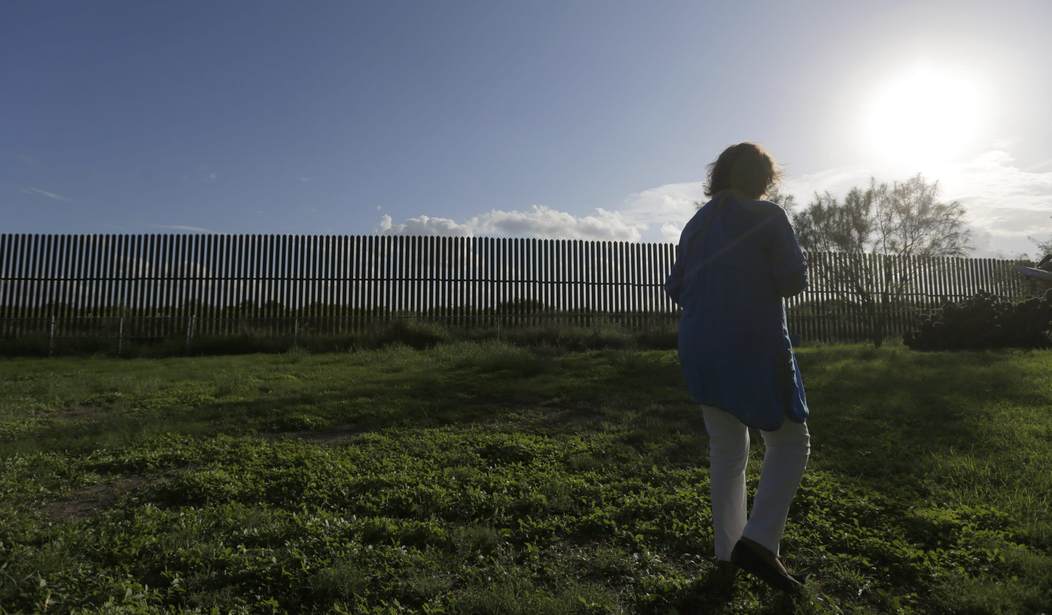WASHINGTON – President Trump’s border wall could potentially drive a wedge into the GOP as building the structure would require acquiring private property including through eminent domain, which flies in the face of traditional conservative support for property rights.
Conservative property owners along the border in Texas oppose the wall, according to the South Texas Property Rights Association, which represents more than 600 landowners. The association’s executive director, Susan Kibbe, in an interview Thursday called the situation a “conundrum” for the party, considering not only the question of property rights but also fiscal conservatism given the estimated cost of $20 billion to $70 billion to build a wall.
Chase Jennings, a spokesman with the Republican National Committee, said in an email Thursday that the party doesn’t want to get into “hypotheticals about the wall itself but we’re confident this administration and Republicans in Congress are committed to delivering on the promises made to the American people.”
“President Trump was elected in part by his promise to keep America safe and to secure the border,” Jennings wrote.
Kibbe, noting her group’s opposition, said that if construction moves forward eminent domain should only be used as a last resort. And if the federal government seizes land, Kibbe said, it’s essential that property owners receive fair compensation. That includes compensation for not only the land taken, but the impact on the remaining property.
“The livelihood of the landowner and just compensation needs to be at the point where it’s helpful and agreeable with the landowner,” she said.
The nonprofit Texas Civil Rights Project has launched a campaign to represent landowners, with a focus on serving low-income Hispanic clients, who are ill-equipped to negotiate with the federal government. The group’s lawyers currently represent a handful of people in previous eminent domain cases tied to border infrastructure. Attorney Efrèn Olivares said that in some cases the government initially offered a few hundred dollars for acres of land. One client, a professor in Brownsville, was offered $100 for 1.3 acres of land that had been passed down in her family, he said. She ultimately negotiated for $56,000.
“What we’ve seen is that it appears the government lowballs the landowner in hopes that the landowner (is unaware of their rights),” he said, explaining that some clients are unaware that they can refuse the government’s offer. “If that happens, the government gets away with it.”
Olivares noted that the eminent domain process allows the property owner to request a jury trial if he or she disagrees with the amount offered. That could mean years of legal battles, as the border wall could potentially involve more than 1,000 landowners.
“We hope the cases never come, but when they do, we will be very much ready to take them,” Olivares vowed.
Olivares said he is aware of the potential rift the border wall could create inside the Republican Party, but any conservative fighting for property rights has the group’s support. “We’ll take all the support we can. We’re against the wall, not against anybody in particular,” he said.
The Wall Street Journal reported last month that none of the 17 lawmakers representing border districts – nine members of the House and eight senators – supported construction of the wall. Last week, Rep. Henry Cuellar (D-Texas), whose district includes 280 miles of U.S.-Mexico border, said in a statement that the president “should be leading the nation, and encouraging investment in border security measures that actually work.” Cuellar supports funding border security technology and personnel upgrades.
Kibbe said that the border wall is unnecessary, given the rivers and cliffs that already serve as natural barriers and the existing security infrastructure. She also discussed the progress of Trump’s promise to heighten border security enforcement, which she said the Border Patrol refers to as the “Trump effect.”
David J. Bier, an immigration policy analyst at the Cato Institute, pointed out in a recent interview that border apprehensions have been declining for years, to the point where some border agents are apprehending less than one person per week. Bier said decreased traffic across remote stretches of the border has shifted to illegal immigrants moving into the country through ports of entry using car trunks and compartments.
U.S. Customs and Border Protection spent about $2.4 billion between 2007 and 2015 to build fences, gates, roads, bridges, lighting and drainage infrastructure along nearly 2,000 miles of the southern border. According to a Government Accountability Office report released in February, the Border Patrol recorded about 2 million illegal entries between ports of entry along the border with Mexico between 2013 and 2015. The report recommended that Border Patrol analyze the impact of existing tactical infrastructure on illegal entry.
“You really have to wonder – how are they going forward with this project without ever having studied the question of whether the existing fence actually reduced border crossings or reduced illegal immigration or anything,” Bier said.
Libertarian National Committee Chairman and Arizona resident Nicholas Sarwark, in a conversation with PJ Media last week, called Trump’s border wall a “ridiculous expense” that will divide Americans and ultimately will have no impact on illegal immigration.
Sarwark said the Libertarian Party supports an open immigration policy. He suggested implementing a system that allows immigrants to pay a fee to enter the country, which he said would disincentivize people from paying $5,000 to $10,000 to coyotes in order to cross the border illegally. It would give the U.S. far better documentation to account for who is living in the country, as well, he added.
“It would be a lot better if we created a door, instead of a wall,” he said. “Peaceful people can come to this country and build a better life the way that they have for hundreds of years and build this country up.”









Join the conversation as a VIP Member